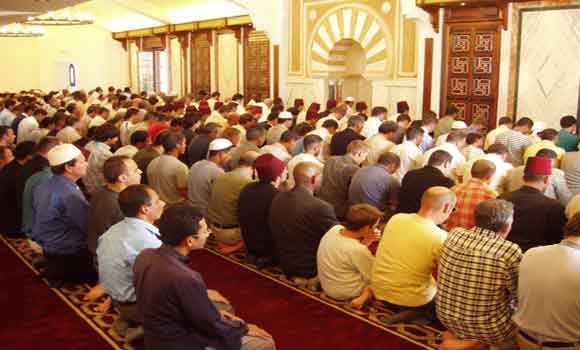The National Statistics Institute of Spain estimates that 2% of the population practices Islam in the country, but the Union of Islamic Communities of Spain (UCIDE) indicates that this percentage actually exceeds 4%.
“Ceuta” and “Melilla” are the cities where the Muslim population is highest, constituting 43% and 52% of the residents respectively, according to a report published by the Spanish newspaper “Confidencial Digital.” Media rarely cover Spanish converts to Islam, and the constitution prohibits census based on religion or ethnicity.
Sources cited by the newspaper indicate that the number of Spanish converts to Islam is approaching 200,000, many of whom converted from other religions or atheism, practicing Islam without foreign influence. They do not speak Arabic, do not eat couscous, and do not wear djellabas.
There are approximately 1,700 places of worship
According to statistics from the Union of Islamic Communities in Spain, more than half of Muslims living in Spanish territory are foreigners (especially Moroccans, Pakistanis, and Senegalese). The remaining are primarily Spanish citizens who have converted to Islam, forming a significant group.
The newspaper recalls that it has been 13 centuries since the first mosque was built in Europe, the Mosque of the Jami, on the Emerald Isle. The first Spanish mosque of our time was built in Ceuta in 1940, the same year Franco built another mosque in Cordoba to guard against Moroccans. Then came the King Fahd Mosque in Marbella in 1981 and the Ahmadiyya Mosque in Pedro Abad (Cordoba) in 1982.

Today, according to the most reliable statistics, there are about 1,700 prayer rooms, mosques, or public places spread across Spain used for Islamic worship. Only 20 of these are traditional places with minarets and schools.
There are no Islamic neighborhoods in Spain
According to the newspaper, Spanish Muslims are well integrated into the job market and do not live in isolation. They do not care about the religious background of their friends or their children’s friends. They do not have satellite dishes to watch “ArabSat” television channels.
Their names are “Antonio,” “Josefa,” or “Isabel,” and many of their neighbors barely know anything about their spiritual affiliation “because we have not made our religion strict,” as Andres Heil says, whose Islamic name he only uses with his Muslim brothers is “Jamal.”
Jesus Almagro, the crane operator from Andalusia known as Isa, tells the newspaper in an interview that “some Muslim immigrants mistakenly believe they cannot be fully Spanish because of their religion.”
He adds, “They feel that their rights are limited because of their embrace of Islam, which leads them to constantly demand political representation and a desire to establish themselves as representatives of all Muslims living in Spain.”
A much higher number
Antonio de Diego, a member of the Ibn Masarra Union of Islamic Associations, estimates that “there are at least 50,000 pure Spanish Muslims living in Spain.”
Barbara Ruiz Bejarano, a researcher at the University of Alicante and responsible for the Halal Institute, believes that the number is much higher “because many people embrace Islam during their visits to Arab and Islamic countries, and there is no record of this in any Spanish mosque.”
Isabel Romero, president of the Islamic Council, recalls that the total number of Muslims living in Spain is approximately two million, and it is easy to estimate that 200,000 or more of these are of Spanish origin.
Sunna Files Free Newsletter - اشترك في جريدتنا المجانية
Stay updated with our latest reports, news, designs, and more by subscribing to our newsletter! Delivered straight to your inbox twice a month, our newsletter keeps you in the loop with the most important updates from our website











